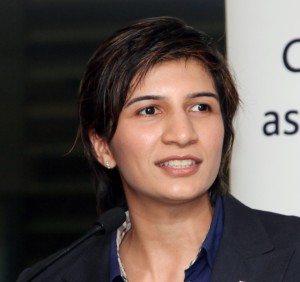 Companies across the globe have realized that when it comes to hiring accounting personnel, there is a distinctive gap to fill between qualifications and employability. For an aspiring accountant, there are many skill sets that have to be sharpened to enable him to make his mark as the gatekeeper of the company. What sets a competent accounting professional apart from a normal accountant with a basic degree? Zenifer Khaleel assesses the competencies that are required
Companies across the globe have realized that when it comes to hiring accounting personnel, there is a distinctive gap to fill between qualifications and employability. For an aspiring accountant, there are many skill sets that have to be sharpened to enable him to make his mark as the gatekeeper of the company. What sets a competent accounting professional apart from a normal accountant with a basic degree? Zenifer Khaleel assesses the competencies that are required
Drawing on its extensive global research into employer needs, CIMA has launched its 2015 Professional Qualification syllabus early this year. This innovative syllabus is focused on equipping the finance professionals of the future with the skills to meet the needs of the business.The Chartered Global Management Accountant (CGMA) is a designation tailored to elevate the profession of management accountant. It is established by two of the world’s most prestigious accounting bodies the AICPA and CIMA
CIMA’s global research led to the development of a competency framework and a new assessment process, addressing the skills and competencies employers require from their finance team.The research involved face-to-face meetings with leading organisations in the UK, US, South Africa and Malaysia, roundtable discussions in 13 countries and a global questionnaire to over 3,000 participants.
 “The CGMA Competency Framework will help in building a strong foundation for businesses in the Middle East. It will not only allow organisations to work with a cohesive, forward-looking approach but will also bring about a great degree of stability in an era of uncertainty, thereby helping business heads to take smarter and sustainable decisions.”, says Geetu Ahuja, Head of GCC at CIMA.
“The CGMA Competency Framework will help in building a strong foundation for businesses in the Middle East. It will not only allow organisations to work with a cohesive, forward-looking approach but will also bring about a great degree of stability in an era of uncertainty, thereby helping business heads to take smarter and sustainable decisions.”, says Geetu Ahuja, Head of GCC at CIMA.
Core competencies
A qualified managerial accountant is required to have a wider range of skills outside the technical competence required by the profession. This has been further augmented by the aftershock of the global financial recession and the need for improving transparency and accountability of business; while remaining competitive and adopting responsible growth strategies. Apart from core accounting and financial skills, top employers have highlighted business acumen, people skills and leadership skills as the desirable traits in aspiring accountants. This insight has been instrumental in creating a syllabus designed to meet the needs of both students and employers to further enhance the business.
The competency framework designed by CIMA includes current key words with their focus on the finance function, viz
- Risk management
- Finance transformation
- Big Data and analytics
- Sustainability
- Integrated reporting
- Cost leadership
- Tax in decision making
- Global awareness
- Ethics
These were developed based on the factor that the emphasis is shifting from mere technical skills to the production of good accounting information and their competent application into the financial discipline.As with any profession, the core skills have to be underpinned by ethics, integrity and professionalism.
The syllabus
New topic areas relevant to accounting in business, such as managing big data, finance function transformation and sustainability have been included with integrated case studies added at each level of the qualification to consolidate learning and reflect real-life work situations.
Major changes have also been made to the assessment of candidates in line with developments in the use of technology in education and industry. Students will benefit from online assessment and exams on demand, which allows them to choose their own pace of progression.
 “CIMA’s 2015 Professional Qualification Syllabus has been designed to address the increasing complexity, uncertainty and ambiguity in the operating environments of business. The syllabus, and its associated computerised assessments, bridges the skills gaps of newly qualified professionals, meeting the employability needs of both business and people. CIMA set out to enhance the relevance of the syllabus to employers; and ensure the rigour of the examinations differentiates between competent and non-competent candidates.” says Shane Balzan, Head of Syllabus Development at CIMA
“CIMA’s 2015 Professional Qualification Syllabus has been designed to address the increasing complexity, uncertainty and ambiguity in the operating environments of business. The syllabus, and its associated computerised assessments, bridges the skills gaps of newly qualified professionals, meeting the employability needs of both business and people. CIMA set out to enhance the relevance of the syllabus to employers; and ensure the rigour of the examinations differentiates between competent and non-competent candidates.” says Shane Balzan, Head of Syllabus Development at CIMA
There are three levels in the professional syllabus. It starts at the entry level of accounting for operational purposes and is designed to address the requirements up to the senior managerial level. Additional support is provided by a post qualification in continuing professional development (CPD) for senior executives.
Business management, performance analysis and financial accounting competencies are addressed under the three headings of Enterprise, Performance and Finance – which are considered to be the pillars of the CIMA syllabus. These pillars have been developed to address the competencies which employers expect their management accountants to have.
In addition to core technical accounting skills (Financial pillar), they should have good business acumen (Enterprise pillar) and the analytical skills to contribute insights for improving business (Performance pillar)
Assessment and evaluation
Employers also expect their finance professionals to have an in depth understanding of their organization, its business model, strategic context, brand value and it position in the competitive market. They are required to be good leaders who can ensure that the accounting information is applied effectively. In short, there should be a smooth transition of theoretical knowledge into practical application
To enable the exertion of this practical ‘hands on’ approach, CIMA has invested in the development of a new assessment procedure with market leaders Pearson VUE. At each level, participants have to face a 90 minute computer based objective test on each subject and a three hour integrated case study. The objective tests ensure that the candidate is familiar with the breadth of the subject matter, while the case study gives them the practical learning experience.
Detailed personal feedback is provided to students based on their performance. The new assessment process will not only test knowledge and understanding but also the application and communication of the students’ prowess.
The CIMA edge
Students who complete the CIMA qualification earn the Chartered Global Management Accountant designation, which highlights the importance of management accounting in today’s economy.
The 2015 syllabus is totally research-lead and informed by those on the front line of business thereby making it a testimony of best practice for addressing the employability needs of both employers and students.
CIMA is the first global accountancy body to pioneer computerised assessments. One of the advantages of computer-based testing is the ability to create new and different question types to test the learning outcomes. Although the syllabus is focused on finance professionals their approach will invoke interest to employers, educators and regulators.












